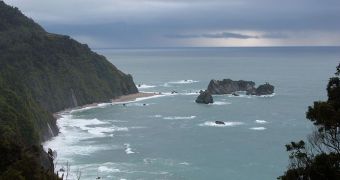According to a new scientific paper published in the December 5 issue of the top scientific journal Nature, it would appear that Earth has a fresh groundwater reserve of nearly 500,181 cubic kilometers (120,000 cubic miles), most of which is buried under oceanic coast lines around the world.
This discovery was made by an international group of researchers, featuring scientists from Australia, the Netherlands, the United States and the United Kingdom. The team argues that this hidden freshwater reserve may come in handy in the future, as water availability will decrease globally.
The investigation was led by researcher Vincent Post, who holds an appointment with the National Center for Groundwater Research and Training, in Adelaide, Australia. He says that the newly-found reserve is around 100 times higher than all the groundwater extracted over the past century.
Scientists with the research team used computer modeling techniques to arrive at these figures, after they conducted a series of drills at various coastal locations around the world. They say that the water is not exactly freshwater, in the sense that it cannot be consumed as is.
However, these reserves have much lower salinity than proper seawater, meaning that any desalination efforts will be less intensive in terms of energy input and costs. Previously, scientists believed that these pockets of water only formed under a particular, rare set of conditions, Science Daily reports.
“Our research shows that fresh and brackish aquifers below the seabed are actually quite a common phenomenon. Knowing about these reserves is great news because this volume of water could sustain some regions for decades,” Post explains.
Statistical predictions from the UN Food and Agriculture Organization (FAO) indicate that nearly 67 percent of Earth's population will experience some form of water stress within the next decade, so the new discovery could turn out to play a critical role in alleviating this stress.
Coastal regions will be the most severely affected by water loss, say experts with the United Nations Environmental Program (UNEP). Areas at high risk include the coasts of the United States and South America, and the southern coasts of Africa, Europe and Australia. Water reserves at these locations could drop 20 percent by 2050.
According to Post, the new water reserves can be exploited either by building a drilling platform at sea (similar to an oil rig), or by drilling close to the aquifers straight from the mainland. Even if successful, these measures will only alleviate the problem in the short run, scientists warn.

 14 DAY TRIAL //
14 DAY TRIAL //